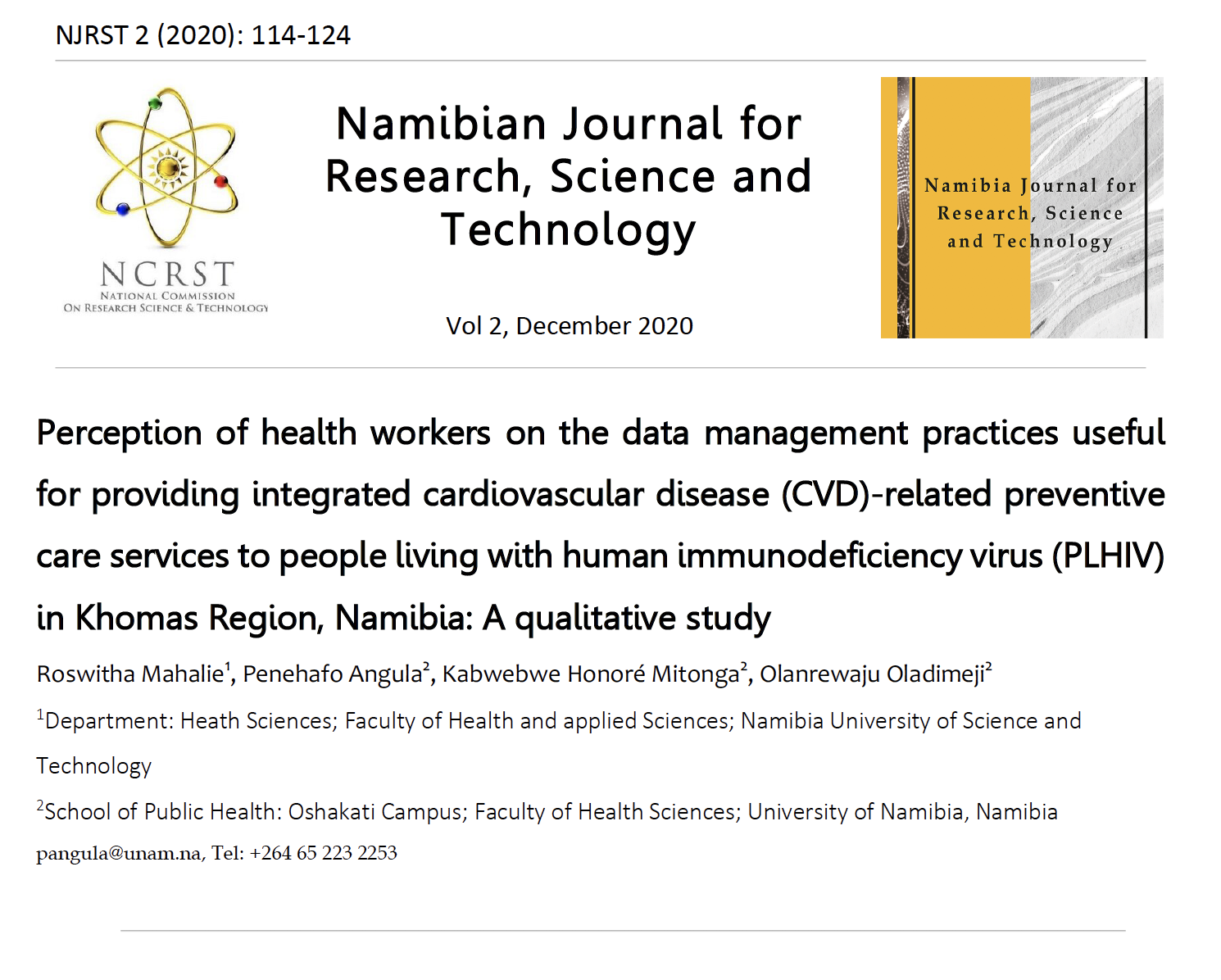Perception of health workers on the data management practices useful for providing integrated cardiovascular disease (CVD)-related preventive care services to people living with human immunodeficiency virus (PLHIV) in Khomas Region, Namibia: A qualitative
Main Article Content
Abstract
Cardiovascular diseases (CVDs) and outdated risk factors are some of the increasing chronic comorbidities for people living with human immunodeficiency virus (PLHIV), leading to poor cardiovascular outcomes. Health systems in Namibia are not responding adequately to this problem by identifying risk factors when screening clients for antiretroviral therapy (ART) initiation. Despite efforts to ensure integration of CVDs data management into existing ART platforms, incomplete disease surveillance and record-keeping remain prominent drawbacks for data managers. Hence the challenge to produce tangible evidence on relationships between human immunodeficiency virus (HIV) and cardiovascular diseases. This study aimed to determine perceptions of healthcare workers regarding data management practices useful in integrated CVD-related preventive care services to PLHIV. A qualitative approach with phenomenological study design incorporating Strauss and Corbin’s grounded theory approach was implemented. Thirteen key informants were purposively selected and interviewed. Data was transcribed verbatim, exported to ATLAS.ti and analysed by generating themes, quotes and networks. Five themes related to data management practices regarding CVDs and its risk factors in the context of HIV at targeted health facilities have been identified. They include monitoring exposure to CVDs risk factors; measuring health outcomes of those risks; handling of risk factors data, and how to use data for decision making in response to CVDs among PLHIV.
Article Details

This work is licensed under a Creative Commons Attribution 4.0 International License.

